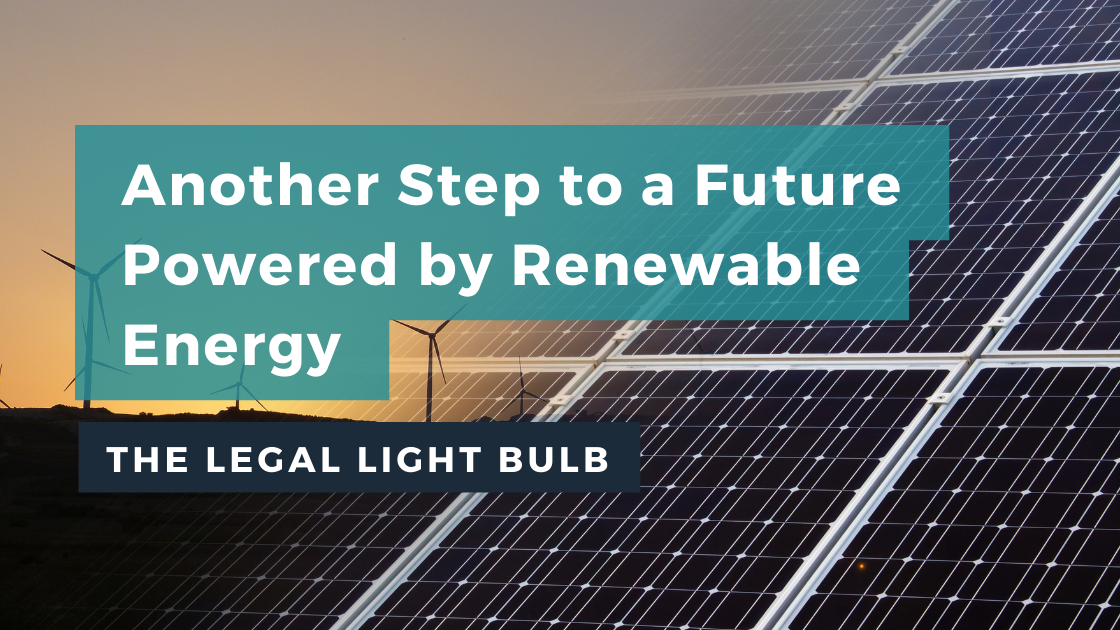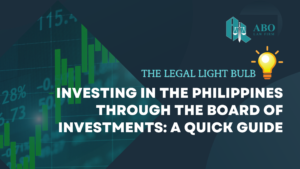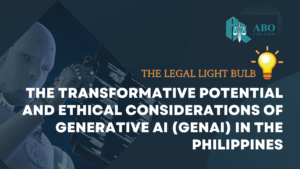Another Step to a Future Powered by Renewable Energy
On 19 April 2023, His Excellency, President Ferdinand R. Marcos, Jr., issued Executive Order No. 21 series of 2023.[1] The executive order directed the Department of Energy (“DOE”) to formulate and issue a Policy and Administrative Framework for the efficient and optimal development of the country’s Offshore Wind resources applicable to all permitting agencies,[2] within sixty (60) days from its issuance.[3] It comes in view of the release of the Philippine Offshore Wind Roadmap initiated by the World Bank, which identified a total technical potential capacity of One Hundred and Seventy-Eight (178) gigawatts that can be harnessed from Offshore Wind resources.
Following the directive, the DOE, on 18 May 2023, issued Department Circular No. DC2023-05-0013, otherwise known as the Implementing Guidelines of Executive Order No. 21.[4] The circular provides the necessary guidelines for the effective implementation and execution of Executive Order No. 21 which includes, among others, the different development stages of offshore wind projects encompassing the corresponding permitting requirements and processes by the permitting agencies.[5]
To better understand the interplay between Executive Order No. 21 and DOE Department Circular No. DC2023-05-0013, it is best to consult an Energy Lawyer or the top law firms in the Philippines.
Policy and Administrative Framework
The policies and framework for Offshore Wind Development shall include the following:[6]
a) Streamlined requirements and procedures for Offshore Wind Energy Service Contract application, administration, and development;
b) Adoption of improved terms and conditions, rights and obligations, and a template for Offshore Wind Energy Service Contract;
c) Provision of support and compliance of all permitting agencies with their mandates under Executive Order No. 21 and the Implementing Guidelines of Executive Order No. 21; and
d) Any other matters as may be necessary to ensure an efficient and optimal offshore wind development.
For an in-depth discussion on the policies and framework for Offshore Wind Development, it is highly recommended to seek advice from an Energy Lawyer or the top law firms in the Philippines.
The Whole-of-Government Approach
For the proper implementation of Executive Order No. 21, the DOE shall adopt a Whole-of-Government Approach. It is a method that integrates and harmonizes the collaborative efforts of the departments and agencies of the government for the successful development of Offshore Wind resources in the country, and for an expeditious and reasonable realization of Offshore Wind Projects.[7]
The DOE shall collate and disseminate to all permitting agencies the processes and requirements for Offshore Wind Development Activities. On the other hand, the Department of Interior and Local Government shall prescribe and mandate a uniform set of local government unit requirements, procedures, permits, and fees in relation to Offshore Wind Development Activities and the necessary grid interconnection.[8]
The current Marcos regime, through the Whole-of-Government Approach, clearly aims for the successful and expeditious development of the country’s Offshore Wind resources. Hence, Renewable Energy Corporations, particularly, Offshore Wind Developers must consult with an Energy Lawyer, Best Business Registration Lawyer, and the top law firms in the Philippines to venture into this opportunity.
Another step to a future powered by Renewables
Executive Order No. 21 and its Implementing Guidelines are welcoming developments in view of the continuous rise in global temperature, and our looming failure to achieve the 1.5℃ temperature goal set out in the 2015 Paris Agreement. Offshore Wind resources, if optimally developed, will play a major role in the country’s goal for a low-carbon future, improved energy security, and reduced dependence on imported fossil fuels.
Further, the development of Offshore Wind resources is another step in increasing the share of renewable energy in our country’s power generation mix. Amidst successive power outages, high electricity prices, and unparalleled warm weather, the assertion to move forward with affordable and reliable renewable energy is extremely timely.[9]
Hopefully, this trend of developing renewable sources of energy will continue. Without the government’s commitment to shift to a One Hundred Percent (100%) share of renewable energy in our country’s energy mix, the negative impacts of climate change we are experiencing today will never be tempered.
Written by: Atty. Wilson Kyle S. Baser
[1] Executive Order No. 21. Directing the Establishment of the Policy and Administrative Framework for Offshore Wind Development.
[2] Permitting Agencies are the Government or relevant entities that are concessionaires or franchisees of the Government which permitting process or authority is relevant to or required for the development of offshore wind projects. The list of permitting agencies is attached in Executive Order No. 21 series of 2023 as Annex “A”.
[3] See Section 2, Executive Order No. 21 series of 2023
[4] DOE Department Circular No. DC2023-05-0013, the Implementing Guidelines of EO 21 or the EO 21-IG.
[5] See Section 2, DOE Department Circular No. DC2023-05-0013.
[6] See Section 5, DOE Department Circular No. DC2023-05-0013.
[7] See Section 3(l), DOE Department Circular No. DC2023-05-0013.
[8] See Section 8, DOE Department Circular No. DC2023-05-0013.
[9] Think-tank pushes for 100% RE to end energy poverty, addresses accessibility woes. https://ceedphilippines.com/think-tank-pushes-for-100-re-to-end-energy-poverty-address-accessibility-woes/





